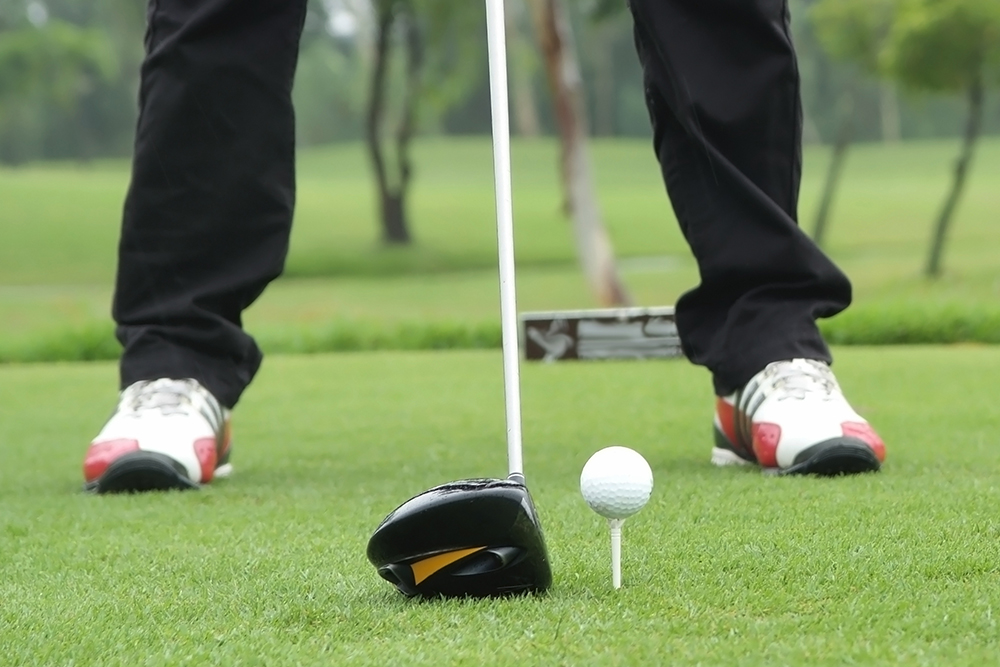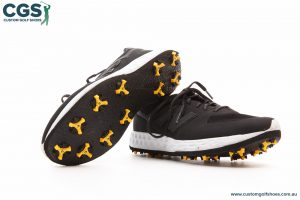

Professional and recreational golfers need a confident swing and plenty of practice for a long day on the golf course. Along with a strong arm, golfers require healthy feet for stability, balance and playing without foot pain or leg fatigue.
Spending five hours on an 18-hole course can take its toll on your feet, which can have a negative impact on your golfing game; something no golfer wants to hear!
If you are currently experiencing foot or leg pain during or after golfing, there could be many different causes.
Common issues for golfers
Biomechanical: Biomechanical issues refer to those related to the structure or function of your feet or legs. This may be over-pronation (the feet rolling in excessively, often referred to as ‘flat feet’) or excessive supination (rolling the foot out, or having ‘high arches’). Both of these, and plenty of others, will impact how you position yourself on the golf course, and how your joints, muscles and ligaments are used. If you are not standing or moving in an optimum position, the tendons and ligaments in your legs can be overused and strained. This can result in pain, discomfort, and even an ongoing injury.
Heel Pain (Plantar fasciitis): Pain in the heel or pain in the arch often indicates inflammation of the long band of tissue under the foot called the plantar fascia. It can cause sharp pain and discomfort at the bottom and inside of the heel, which may radiate into the arch. It is the long hours on your feet that make this a common injury with golfers.
Achilles Tendonitis: Your Achilles tendon is the cord-like band at the back of your heel that extends up into your calves. It is the strongest and largest tendon in the body – and takes on the most strain during physical activity. Achilles tendon strains, partial tears, and even full thickness ruptures of the Achilles tendon are common golfing injuries. Your feet are under excessive pressure during the golf swing. If you have pain and inflammation at the back of the heel which is exacerbated by walking, you may have Achilles tendonitis.
Mortons Neuroma: A Morton’s neuroma produces pain in the midfoot or forefoot, between the long bones of the feet (metatarsals). It is caused by the inflammation around a nerve that runs between these bones, and most commonly occurs between the second and fourth toes. In golfers, we see this condition often being caused by wearing tight or poorly fitting golf shoes for prolonged periods of time. Your pain will feel much worse in the shoes and when walking, and much better out of the shoes when you have your feet up.
Big Toe Arthritis (Hallux Rigidus):
Hallux Rigidus is a type of degenerative arthritis which we see in golfers when they repeatedly overextend the big toe during the golf swing. This motion causes stress and pain on the big toe and limits a golfers ability to play.
Foot health tips for golfers
 Golfing shoes: Choosing the best golf shoes for the unique characteristics of your feet, like any bunions or hammertoes, will provide comfort and functionality on the golf course, while reducing your risk of pain and injury. The perfect fitting shoes and a strong golf club to match will provide durability and stability for a neutral position. Advanced technology means golfing shoes are lighter and functionally improved to accommodate walking through the course.
Golfing shoes: Choosing the best golf shoes for the unique characteristics of your feet, like any bunions or hammertoes, will provide comfort and functionality on the golf course, while reducing your risk of pain and injury. The perfect fitting shoes and a strong golf club to match will provide durability and stability for a neutral position. Advanced technology means golfing shoes are lighter and functionally improved to accommodate walking through the course.
Custom Golf Shoes: Many golfers choose to use their favourite trainers on the golf course after having them customised into comfortable golf spikes by our pedorthic team. This is done routinely for comfort on the links, but also for style, fitting issues and for injury management. At My FootDr, we can modify just about any shoe, converting them with industry-leading Champ Stinger spikes.
Orthotics: Custom-made foot orthotics for your golf shoes will improve posture and stabilise your feet. Orthotics support and correct body posture and the way your feet and legs work together as you move. If you already have daily use orthotics, you can transfer them into your golf shoes or invest in a second pair made for your golf shoes if you are a regular on the course. We often have golfers request specific thin and light orthotics for their golf shoes.
Injury Rehabilitation:
Being told to rest can be frustrating, but it is important to allow foot, leg and hip injuries to heal. Foot related injuries which are left untreated can cause and aggravate existing conditions such as plantar fasciitis, corns, callus and previous injuries. By allowing adequate healing time, your feet will have a chance to properly repair, recover and strengthen.
My FootDr podiatrists provide suitable shoe and orthotic recommendations to golfers who spend any period on their feet.


